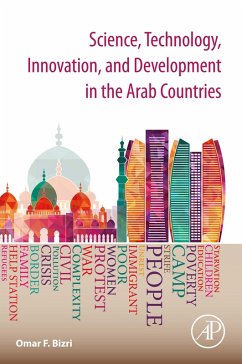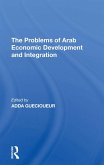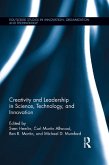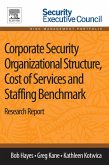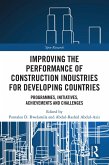Science, Technology, Innovation, and Economic Growth in Arab Countries explores fresh approaches to STI policy formulation and implementation in the region, with applications to developing countries elsewhere. Developing useful contexts for studying Arab policies about science, technology, and innovation requires trustworthy data and judgment. Omar Bizri brings together both in this book.
Data from sources such as the World Bank, UNESCO, the International Telecommunication Union, Nature, Science and recent surveys and policy formulation initiatives anchor this study among national initiatives that focus on essential needs, including safe water and food production, renewable energy utilization, and job and enterprise creation. For those eager to understand the challenges of STI capacity building, this book explores the many connections between technological change and economic growth.
Data from sources such as the World Bank, UNESCO, the International Telecommunication Union, Nature, Science and recent surveys and policy formulation initiatives anchor this study among national initiatives that focus on essential needs, including safe water and food production, renewable energy utilization, and job and enterprise creation. For those eager to understand the challenges of STI capacity building, this book explores the many connections between technological change and economic growth.
- Presents and analyzes data about past, current and proposed efforts aimed at STI capacity building in Arab countries
- Emphasizes demand-driven policies for promoting rapid infrastructure and endogenous STI capacity building, as well as job creation
- Explores ways to enhance STI capacity building efforts through community-based and national initiatives
- Includes data from sources such as the World Bank, UNESCO, the International Telecommunication Union, Nature, Science and recent surveys
Dieser Download kann aus rechtlichen Gründen nur mit Rechnungsadresse in A, B, BG, CY, CZ, D, DK, EW, E, FIN, F, GR, HR, H, IRL, I, LT, L, LR, M, NL, PL, P, R, S, SLO, SK ausgeliefert werden.
"The relation of innovation and development has been closely examined for countries such as New Zealand, Chile, Finland, Ireland, Slovenia and the East Asian tigers. However, until now little attention has been devoted to the Arab world. This volume is a welcome primer to science, technology, and innovation of 22 countries in the Middle East and North Africa. International organizations, policymakers, and scholars devoted to Arab development will find this to be a useful guide to the science and technology infrastructure of those countries." --Walter D. Valdivia, Mercatus Center, George Mason University

